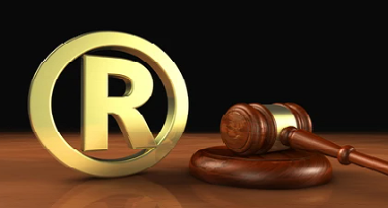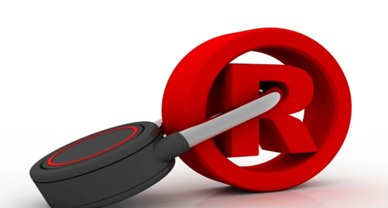Landmark Trademark Battles: Shaping Brand Protection Globally and in India
INTRODUCTION
Section 29[1] of the Trademark Act, 1999, defines infringement as: “Trademarks infringement occurs if an unauthorized party makes use of a registered trademark in a way that is likely to lead to confusion about the origin of the product.” Trademarks are very important business assets because they distinguish products and embody reputation. Protection of trademarks is important for the following reasons:
- Preservation of brand identity
- Prevention of customer confusion
- Business investment protection
- Fair Competition
- Innovation in branding
Famous infringement cases within the areas of intellectual property underline complex legal issues and stakes involved. Such disputes, very often setting important legal precedents, influence trademark protection and enforcement globally.
FAMOUS CASES OF TRADEMARK INFRINGEMENT
1.Foreign Cases
Apple v. Samsung :
This was a case, from 2011 to 2018, where Apple took the word against Samsung, claiming infringement of its smartphone design and utility patents. This was one case between two major tech giants that threw the spotlight on just where inspiration ended and plagiarism started. Apple had accused Samsung of copying the features of the iPhone, like the rounded-rectangle shape, home button, and the grid icon layout. The legal battle unfolded in several countries and brought about several verdicts, one of the most significant being a $539 million jury verdict in Apple’s favor back in 2018. This case led the way in design patent damages and underscored the importance of innovation protection in a fast-moving technology sector; it also pointed out how difficult it has become to distinguish functional from ornamental features on modern electronic devices.[2]
Adidas vs. Payless ShoeSource:
This 2008 case highlighted the importance of protecting a trademark within the fashion industry. Adidas filed an action against Payless, alleging that the latter was selling shoes featuring two and four parallel stripes, thereby infringing upon Adidas’ famous three-stripe mark. The court found for Adidas and convicted Payless of wilful infringement, awarding it $304.6 million in damages—the largest award on record in the United States pertaining to trademarks. The lawsuit raised an understanding of the value of enduring trademarks and the perils of “knock-off” designs. It illustrated that even minor similarities could succeed as infringement in the case of famous marks. The judgment made budget retailers realize the price they must pay for imitating established brands and stressed the virtue of originality in design, even within the lower end of the market.[3]

Starbucks vs. Charbucks:
This long-running dispute from 2001 to 2013 over a small New Hampshire coffee roaster’s use of “Charbucks” for dark roast coffee, arguing that Starbucks had diluted its famous trademark, places a number of issues regarding trademark dilution and parody at the very centre of this case. While there is a phonetic similarity, the courts have continued to rule in favour of Black Bear Micro Roastery, finding no likelihood of confusion or dilution. The rulings, in turn, drove home that mere association is not sufficient to support a finding of trademark infringement or dilution. It was another case of how hard it is for big brands to defend their marks against light-hearted references where the respective products have different markets. It also showed the need for proving actual economic injury in claims of dilution.[4]
2.Indian Cases
Bata India Limited vs. Chawla Boot House:
Bata sued Chawla Boot House for having a similar red-and-white color scheme and font style in their signboards. It is an instance of a case decided in favour of the Bata plaintiff due to recognition by the Delhi High Court of a long period of use and the reputation associated with this distinctive trade dress. The court held that Chawla’s use was likely to cause confusion among consumers. This case was actually one of those that set out the point for trade dress in trademark protection, which went beyond names and logos to colour schemes and visual presentation. It showed the way that established brands can protect their visual identity from imitators, even when getting as close as possible without duplicating the actual name.[5]
N.R. Dongre and Ors. V Whirlpool Co. and Anr.
It is this judgment that more or less laid the foundation of “trans-border reputation” in Indian trademark law. Whirlpool was able to claim rights over its trademark in this country, even though it didn’t have a physical presence here and did not have any registration at that time. Its reputation across the globe and exposure of Indian consumers through advertisements in foreign magazines were taken note of by the court. This judgment played a very significant role in protecting foreign brands here in India, establishing the acknowledgment that trademark rights can subsist on the basis of reputation, even in the absence of local registration or use. It underlined brand recognition as borderless in the modern age.[6]
Cadbury UK Limited Vs. Neeraj Food Products :
Cadbury filed a suit against Neeraj Food Products for passing off its chocolates in identical deceptively similar purple packaging. In the instant action, Delhi High Court ruled in favour of Cadbury, thus establishing their rights over the inimitable purple color for chocolates. Upon observation, it was found that since the second litigant’s use was of a very similar shade, it was most likely going to confuse customers. This was a landmark case to show that color is an essential element in India’s trademark protection. It revealed that a certain color, practiced over time and through association with the company, was capable of serving as a trademark and therefore could extend the possibility of trademark rights beyond such conventional indices of trademarks as names and logos.[7]
CONCLUSION
The analysis of the following landmark cases of trademark infringement, both international and Indian in nature, establishes the ever-complex and dynamic system of intellectual property law. These cases are, therefore, of immense importance in shaping the legal framework for the said offenses and will continue to do so in the future.
From the struggle of the tech giants in Apple v. Samsung to the cultural implications in Starbucks v. Charbucks, these cases all show the fine line between the protection of established brands and fair play. In India, the cases of N.R. Dongre v. Whirlpool and Cadbury v. Neeraj Food Products have set a trend in trademark protection by extending it to new concepts such as trans-border reputation and color as a distinctive element.
These rulings reiterate that branding must be original and a business must, at all costs, protect its intellectual property. They further underline an issue with the application of trademark law within an increasingly globalized and digital marketplace where brand recognition does not respect geographical boundaries.
As the markets are changing all the time, so will be the understanding and application of trademark law. Businesses need to keep up with legal developments in order to efficiently protect their brands while walking this thin line between inspiration and infringement in their very own practice.
Author: Sachi Dahiya, in case of any queries please contact/write back to us at support@ipandlegalfilings.com orIP & Legal Filing
REFERENCES
- Trade Marks Act, No. 47 of 1999.
- Apple Inc. v Samsung Electronics Co., Ltd., 786 F.3d 983 (2015).
- Adidas-America, Inc. v. Payless Shoesource, Inc. 546 F. Supp. 2d 1029.
- Starbucks Corp. v. Wolfe’s Borough Coffee, Inc., No. 01 Civ. 5981 (LTS)(THK) (S.D.N.Y. Sep. 28, 2004).
- Bata India Limited vs Chawla Boot House & Anr on 16 April, 2019.
- R. Dongre and Ors. V Whirlpool Co. and Anr., (1996) 5 SCC 714.
- Cadbury UK Limited Vs. Neeraj Food Products, 142 (2007) DLT 724
[1] Trade Marks Act, No. 47 of 1999, § 29 (Ind.)
[2] Apple Inc. v Samsung Electronics Co., Ltd., 786 F.3d 983 (2015).
[3] Adidas-America, Inc. v. Payless Shoesource, Inc. 546 F. Supp. 2d 1029.
[4] Starbucks Corp. v. Wolfe’s Borough Coffee, Inc., No. 01 Civ. 5981 (LTS)(THK) (S.D.N.Y. Sep. 28, 2004)
[5] Bata India Limited vs Chawla Boot House & Anr on 16 April, 2019
[6] N.R. Dongre and Ors. V Whirlpool Co. and Anr., (1996) 5 SCC 714.
[7] Cadbury UK Limited Vs. Neeraj Food Products, 142 (2007) DLT 724.


